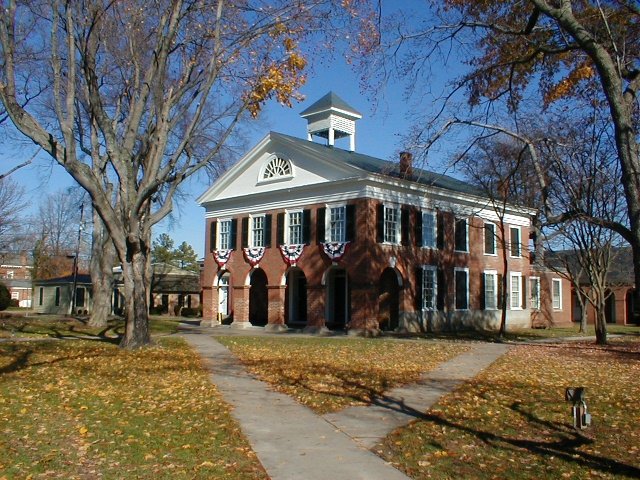
In November, Focus Features brought one of the nation’s most enduring love stories to the big screen with Loving, a movie tracing an interracial couple’s journey from the Circuit Court of Caroline County in Virginia all the way to the United States’ Supreme Court.
For Northern Virginians looking to get a closer look at this piece of American history, there are multiple Caroline County destinations where visitors can reflect on the revolutionary romance that helped prove Virginia is, in fact, for lovers.
Mildred Jeter and Richard Perry Loving were both born and raised in Central Point. Loving was a white construction worker, and Jeter was the African-American and Cherokee daughter of a tenant farmer. Due to segregation, the two went to different schools and churches, but it was otherwise acceptable to interact with one another in Central Point.
After finding out that 18-year-old Jeter was pregnant, Loving, 24, proposed. Because they could not obtain a marriage license in Virginia, the two went to D.C. and were legally wed on June 2, 1958, after which point they returned to their hometown.
However, the newlyweds soon found out they were in violation of Virginia’s 1924 Act to Preserve Racial Integrity when Caroline County commonwealth attorney Bernard Mahon issued warrants for their July 11 arrest. Jeter and Loving were jailed in Bowling Green. Loving was released after one night and a $1,000 bond, but Jeter remained there for several days before being able to return to her parents’ home.
In violation of state law, the Lovings pleaded guilty and were forced to leave the state for 25 years. The couple lived in D.C. for years, sneaking back into Caroline County to have their children and visit relatives before Jeter wrote attorney general Robert Kennedy, who forwarded their case to the area branch of the American Civil Liberties Union. They were assigned to Philip J. Hirschkop, who helped bring their case before the Supreme Court.
Years after their controversial D.C. union, the Supreme Court ruled on June 12, 1967 (now called Loving Day) that Virginia’s racial integrity laws violated the 14th Amendment. The Lovings were able to return home, where they raised their three children (Sidney, Peggy and Donald) in a home that Richard had built for them.
Loving was tragically killed by a drunk driver in 1975, but Jeter, who lost her right eye in the same car accident, lived until 2008, when she died of pneumonia. Jeter continued to live in the home that Loving built for their family until her death, and the Loving family continues to keep their address information private.
However, Northern Virginians can still pay tribute to the Caroline County couple’s historic relationship by first checking out the Caroline County Visitor’s Center, where they can pick up a brochure about the Lovings as well as information about where to spend the night or grab a bite to eat.
Then, you can visit a monument dedicated to the Lovings’ memory. Located outside the Caroline County Courthouse at 104 Courthouse Lane in Bowling Green, the monument is inscribed, “Mildred Loving, who along with her husband Richard, helped strike down laws prohibiting interracial marriage in the United States.”
Those wishing to pay their respects can do so by visiting Saint Stephen’s Baptist Church Cemetery, located at 29346 Sparta Road in Central Point. Both Jeter and Loving can be found buried side by side in the town they fought so hard to once again call home.




